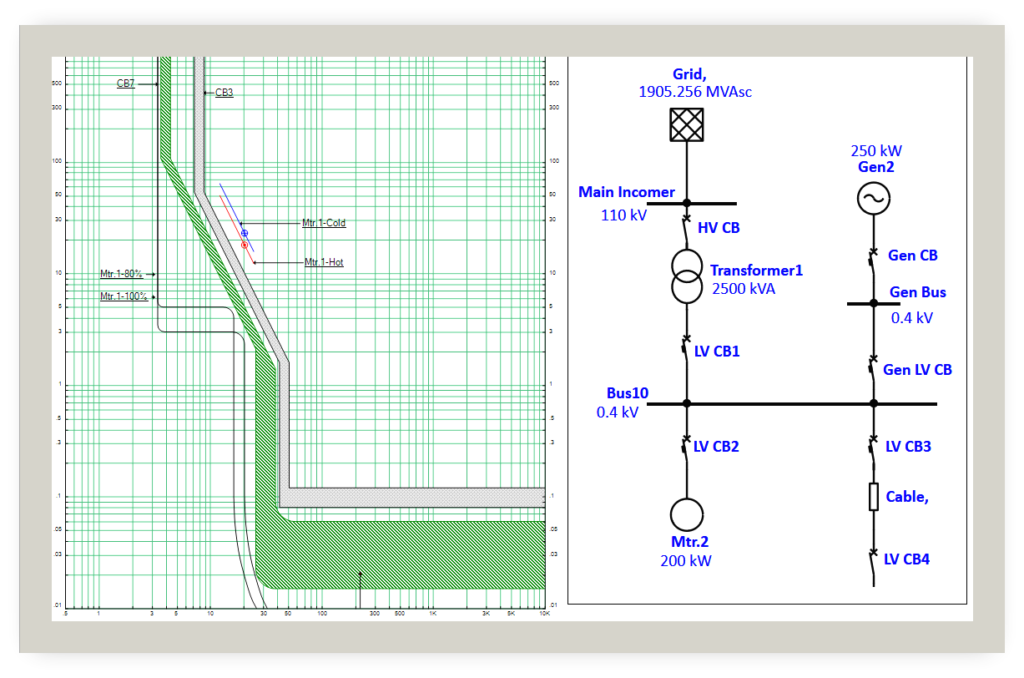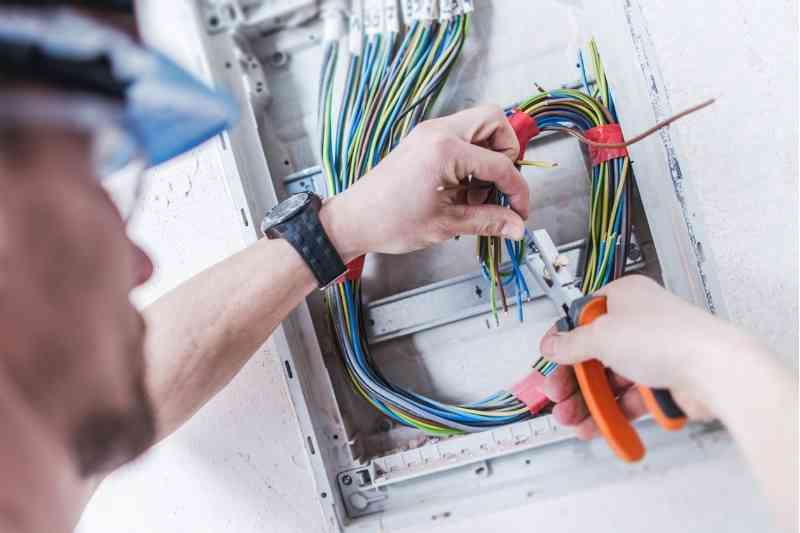Here Is A Quick Way To Solve A Info About Is It Safe To Run PC On Low Voltage

Low Voltage Does Not Mean Hazard
Understanding Voltage and Your PC
1. What Exactly is "Low Voltage" Anyway?
Let's get one thing straight: voltage is basically the electrical pressure pushing power through your computer's components. Think of it like water pressure in a pipe. If the pressure is too low, things don't flow correctly. Your PC needs a certain voltage to function properly, and "low voltage," in this context, means less than what the manufacturer intended. We're not talking about turning your gaming rig into a low-rider; we're talking about possibly causing instability or damage. That is why the term "Is it safe to run PC on low voltage" is a very crucial thing to be asked.
Now, what's considered "low" depends on the specific component. Your CPU, RAM, and graphics card all have their ideal voltage ranges. Going outside those ranges, especially lower, can cause a whole host of problems. It's like trying to run a car on fumes — eventually, you'll sputter and stall.
So, how do you even know if you're running low voltage? Well, usually your computer will tell you. It might crash unexpectedly, produce errors, or simply refuse to boot up. Sometimes, it's more subtle. You might experience performance issues, like stuttering in games or slow processing times. These issues are not always because of low voltage but it is something that needs to be considered.
Think of it as your PC sending out an SOS. Its trying to tell you somethings not right. Ignoring those warning signs is like ignoring the check engine light on your car — its probably not going to fix itself, and could get a whole lot worse.

Low Voltage Wiring Basics An Introduction (2024)
The Perils of Undervolting
2. Why You Shouldn't Skimp on the Juice
Running a PC on low voltage, also known as undervolting, sounds tempting, right? You might think youre saving power and reducing heat. And, to be fair, in some controlled circumstances with the right expertise, it can be done. But for the average user, dabbling in undervolting is like playing with fire. "Is it safe to run PC on low voltage" is the main question here, and the short answer is generally no, unless you know exactly what you're doing.
The most immediate consequence of insufficient voltage is instability. Your system might become prone to crashes, freezes, and the dreaded Blue Screen of Death. These crashes aren't just annoying; they can also lead to data loss if you haven't saved your work. Imagine losing hours of progress on a project because you were trying to shave off a few watts — not exactly a winning strategy.
Beyond crashes, low voltage can also damage your components in the long run. When components don't receive enough power, they have to work harder to perform their tasks. This extra strain can lead to overheating and premature wear and tear. It's like forcing your car to climb a steep hill in too high a gear — you're putting unnecessary stress on the engine.
Then there's the issue of performance. While undervolting can sometimes improve performance in certain situations (usually very specific, controlled overclocking scenarios), more often than not, it leads to the opposite. Your CPU or GPU might throttle its clock speed to compensate for the lack of power, resulting in lower frame rates in games and slower rendering times in other applications. You are better off just running with recommended power.

Low Voltage Electrical Safety Training
When is Low Voltage Actually...Okay?
3. The Caveats and Considerations
Alright, alright, I know what you're thinking: "You've painted a pretty bleak picture of low voltage. Is there ever a good reason to do it?" And the answer is...it depends. There are specific situations where undervolting can be beneficial, but they require a good understanding of your hardware and a willingness to experiment (and potentially break things). But remember we are focusing on "Is it safe to run PC on low voltage" here, we are talking about doing this unintentionally or not having enough voltage for pc parts.
One common scenario is with laptops. Many laptops are designed to run at lower voltages when they're on battery power to conserve energy. This is perfectly normal and doesn't usually cause any issues, as it is made by design. However, if you're experiencing performance problems on battery power, it's worth checking your power settings to ensure that your laptop isn't undervolting too aggressively.
Another situation where undervolting might be considered is with overclocking. Some advanced users will undervolt their components to reduce heat and improve stability when overclocking. However, this is a very delicate balancing act and requires careful monitoring and testing. It's definitely not something I'd recommend for beginners. Even experienced users can run into issues. Remember, undervolting is best left to the experts. For most users, the risks far outweigh the potential rewards.
Keep in mind that voltage fluctuation can also be a symptom of a failing power supply. A weak or failing PSU might not be able to deliver the correct voltage to your components, leading to instability and performance issues. If you suspect your PSU is the problem, it's best to replace it with a new one, and it is important to know that the terms, "Is it safe to run PC on low voltage" can be a critical component failure.

Diagnosing Voltage Problems
4. Signs Your PC Might Be Starving for Power
So, how do you know if your PC is suffering from low voltage? Well, there are a few telltale signs to watch out for. One of the most common is instability. If your system is crashing frequently, especially under load (like when you're gaming or running demanding applications), low voltage could be the culprit.
Another symptom is performance degradation. If you notice that your games are running slower than usual, or that your system feels sluggish in general, low voltage could be to blame. This is because your CPU or GPU might be throttling its clock speed to compensate for the lack of power. This will answer your question "Is it safe to run PC on low voltage" if you have these issues.
You can also use monitoring software to check your system's voltage levels. Programs like HWMonitor or CPU-Z can display the voltage readings for your CPU, RAM, and other components. Compare these readings to the recommended voltage ranges for your hardware to see if anything is out of whack. If you're not sure what the correct voltage ranges are, consult your motherboard or component manuals.
Finally, don't overlook the obvious: your power supply. A failing PSU is a common cause of low voltage issues. If you've ruled out other potential problems, it's worth testing your PSU to see if it's delivering the correct voltage. You can use a PSU tester for this, or take your computer to a qualified technician for diagnosis.

Fixing Low Voltage Issues
5. Solutions and Troubleshooting Tips
If you've determined that low voltage is indeed the problem, don't despair! There are several things you can try to fix it. The first and most obvious step is to check your power supply. Make sure it's properly connected to the motherboard and that all the cables are securely plugged in. A loose connection can sometimes cause voltage drops.
Next, check your BIOS settings. Some motherboards have settings that allow you to adjust the voltage supplied to your CPU, RAM, and other components. Make sure these settings are configured correctly and that you're not accidentally undervolting anything. However, if you are inexperienced with your system BIOS, leave this setting alone.
If you're using a desktop PC, consider upgrading your power supply. A weak or failing PSU might not be able to deliver enough power to your components, especially if you've upgraded your CPU or graphics card. Choose a PSU with enough wattage to handle all of your components, and make sure it's a reputable brand.
Finally, if all else fails, it's possible that one of your components is faulty. A failing CPU, RAM module, or motherboard can sometimes cause voltage problems. If you suspect a hardware failure, it's best to take your computer to a qualified technician for diagnosis and repair. It is imperative to handle this with professional help, so the question "Is it safe to run PC on low voltage" will be answered.

All About LowVoltage Wiring & How To Install It
FAQ
6. Your Burning Questions Answered
Q: Will undervolting my CPU automatically save me money on my electricity bill?A: While it might slightly reduce your power consumption, the savings are usually negligible for the average user. The potential risks of instability and performance problems often outweigh the small monetary benefit.
Q: My computer is crashing, but I'm not sure if it's low voltage or something else. What should I do?A: Start by checking your system's error logs for clues. You can also run a memory test to rule out RAM issues. If you're still unsure, consult a qualified technician for diagnosis. Often times answering the question of "Is it safe to run PC on low voltage" can be complex.
Q: I'm building a new PC. How do I make sure I have enough power?A: Use a PSU calculator to estimate your system's power requirements. Add a buffer of at least 20% to account for future upgrades and to ensure that your PSU isn't running at its maximum capacity. A good quality PSU is a great investment in the long-term stability of your computer.